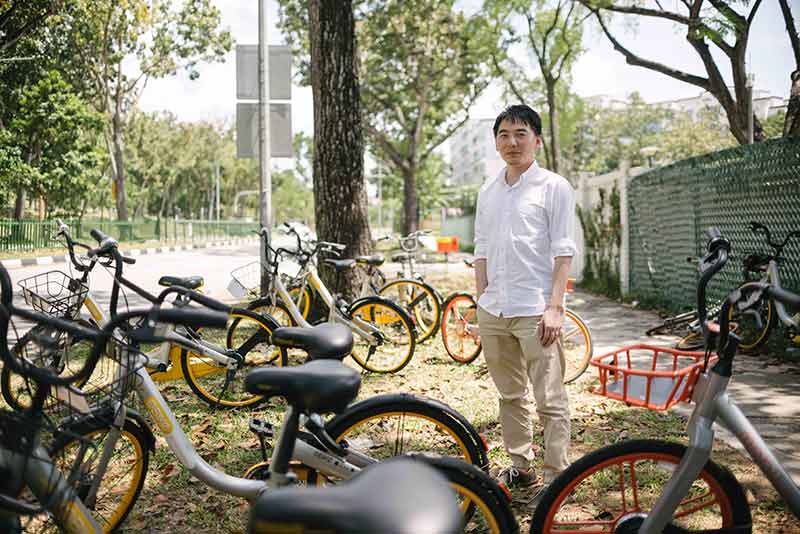
As dockless
bicycle sharing becomes increasingly popular in Singapore, the Singapore
Government introduced legislation
into the Parliament last week to allow the Land Transport Authority
(LTA) to implement
a licensing regime for operators that provide for dockless sharing of
active mobility devices.
Researchers
from the Singapore-MIT Alliance for Research and Technology (SMART) have come up with insights on the usage
of dockless bike sharing in Singapore, which could offer guidance to
urban planners, policy makers, and transportation practitioners who wish to
promote bike-sharing service while ensuring its sustainability.
They published
a paper, "Understanding
the usage of dockless bike sharing in Singapore", in the International Journal of
Sustainable Transportation in February 2018. This research was funded by the
National Research Foundation Singapore under its Campus for Research Excellence
and Technological Enterprise (CREATE) programme.
The researchers collected the GPS data of all dockless bikes
from one of the largest bike sharing operators in Singapore for nine
consecutive days, for a total of over 14 million records. They used this data
to explore the impact of bike fleet size, surrounding built environment, access
to public transportation, bicycle infrastructure, and weather conditions on the
usage of dockless bikes.
Leveraging a new analysis method developed by the SMART
Future Urban Mobility (FM) Interdisciplinary
Research Group (IRG), the researchers arrived at several findings which could
help Singapore achieve equilibrium between demand and supply of such bicycles,
given that the fleet size is now no longer constrained by the capacity of the
docking stations.
Larger bike fleet size was found to be associated with
higher usage, but with diminishing marginal impact. In addition, high land use
mixtures, easy access to public transportation, more supportive cycling
facilities, and free-ride promotions positively impact the usage of dockless
bikes.
The researchers found that each bicycle is used less than
twice per day on average. The usage of dockless bikes was higher in the evening
(after 5pm) than the morning peak, thereby bringing up a rebalancing issue for
fleet management.
Rainfall and high temperatures exhibited a negative impact on
bike utilisation. Weather plays a key role in determining usage. In view of
Singapore's frequent rainy weather or scorching heat, greater infrastructure
support such as built covered walkways are needed to promote bike utilisation and
avoid too many bikes remaining idle and affecting bike operators' bottomline.
This effect is accentuated by the fact that the rain also promotes faster
degradation of the bicycles.
Supply is much higher in public property areas (HDB or
public housing flats) areas versus private residential. High bike usage was observed
near MRT station and bus stops, implying that dockless bikes are heavily used
for last-mile trips to and from public transport.
SMART FM Postdoctoral Associate, Dr Zhang Xiaohu, said,
"This work pioneers the study of dockless bike-sharing programmes based on
real-time GPS data. It highlights the diminishing returns as the fleet size
gets larger beyond a certain point at specific areas. Regulating fleet size is
certainly needed for the effective management of urban public space as the
oversupply of bikes may hurt the operators' economic sustainability and cause
urban and visual pollution."
SMART FM Principal Investigator, Prof Zhao Jinhua, added,
"In contrast to Singapore’s otherwise premium transportation system, its
cycling infrastructure is lacking. To be at the forefront of sustainable
transportation, Singapore needs to substantially expand pedestrian and bicycle
paths, enable deeper integration with public transportation and cultivate a
culture of active travel.”
















